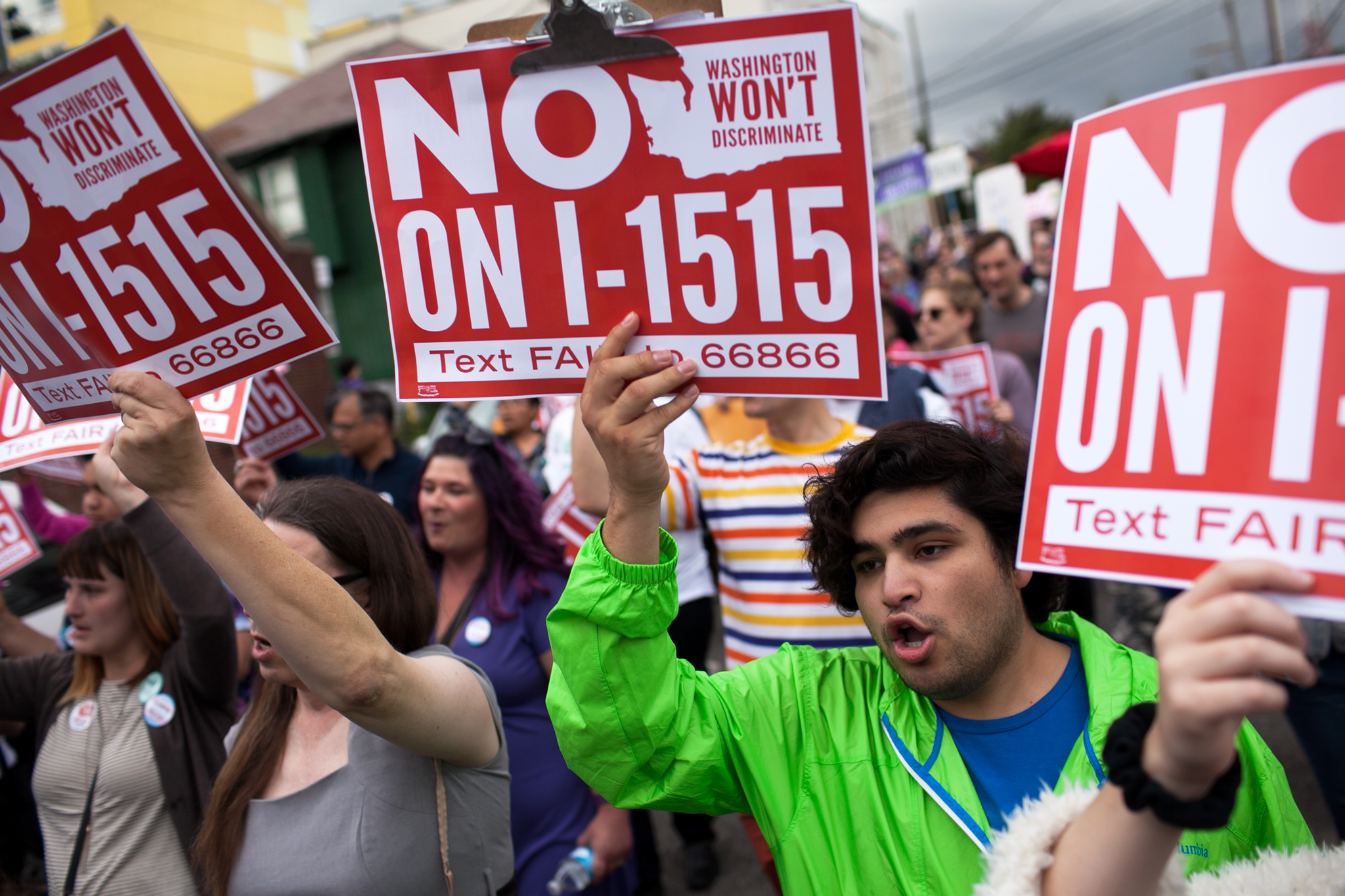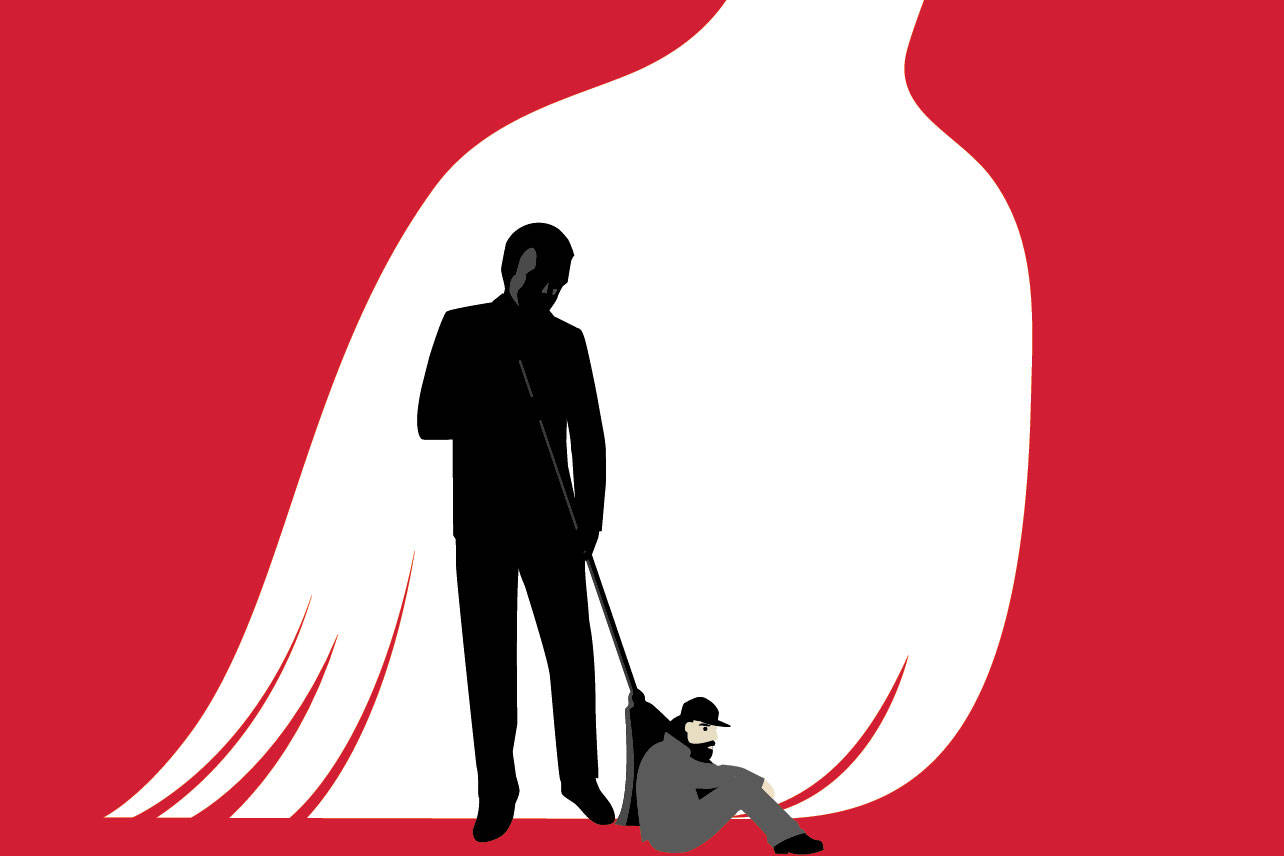On Friday, Washington reaches a crossroads.
July 8 is the deadline for those wishing to place citizen initiatives on the November ballot to submit 246,372 valid signatures to the Washington Secretary of State. The day will be a time of reckoning for scores of ballot measures dealing with matters ranging from grandparents’ rights to see their grandkids to declaring our love for cars. But come Friday all eyes will be on one initiative: I-1515, originally introduced as the Student Privacy and Locker Room Safety Act.
The privacy and safety I-1515 purports to address relates to the use of bathrooms and locker rooms by transgender people; it would achieve its purpose by allowing businesses to bar transgender men from the men’s bathroom and vice-versa; and making schools liable for thousands of dollars if, say, a transgender girl is found in the girls’ bathroom instead of the boys’.
The initiative, backed by a group called Just Want Privacy, is a backlash to significant strides made in transgender rights in recent years, among them clarifications made by the Washington Human Rights Commission that a 2006 law protecting LGBT rights includes free access to facilities that correspond to people’s gender identity. This law was passed by a democratically elected legislative body, and the rules set by a governor-appointed commission. In other words, extending rights to our transgender neighbors was not some top-down directive from leftist conspirators, but the legitimate result of our democratic rule of law.
That said, this being a democracy, people are allowed to disagree with those results, and it should surprise no one that a portion of people in Washington have questioned the recognition of these transgender rights and availed themselves of the citizen-initiative process. Disagree though we may with the intent of I-1515, our society is stronger if people feel they have a say in it.
That’s not to excuse the way I-1515 backers have gone about exercising their rights as citizens. This spring, reports have surfaced that Joseph Backholm, who is leading the charge for I-1515, encouraged male signature-gatherers to enter women’s restrooms to demonstrate the ramifications of the transgender-rights decision. Backholm is willfully and dangerously misrepresenting the intent of the law, hence King County Sheriff John Urquhart’s response that he’ll see to it that any signature-gatherer who tries such a stunt is arrested.
That’s democracy, and democracy is messy. But this, too, is democracy: If your side doesn’t have enough support to win, then you must accept the results, which brings us back to Friday.
According to Just Want Privacy’s own figures, the group has so far gathered 132,458 signatures, or 167,542 short of its goal of 300,000. (The Secretary of State recommends that initiatives submit more than the minimum 246,000 required to account for ineligible signatures.)
Assuming Just Want Privacy is being truthful in its figures—which, granted, is assuming a lot from this group—there is little chance that I-1515 will fulfill the requirement for putting its measure to a vote of the people. If that happens, we can already predict the excuses: They started gathering signatures late in the process; their efforts were smeared by the liberal press; people don’t understand what they are trying to do.
In truth, if on Friday Just Want Privacy cannot submit enough signatures to put I-1515 on the ballot, it will provide yet more proof that the fear and loathing of transgender people that Backholm and his ilk espouse does not represent us as a people. It will be the strongest evidence yet that Washingtonians just aren’t interested in reversing efforts to make our society more welcoming to everyone. For all intents and purposes, the debate will be over, and no one should complain that they didn’t have a chance to have their say.
And what if they do get their signatures? Well, then the debate will continue—and unfortunately, given what’s already transpired, we know it will be infused with bitter strains of bigotry.
But the silver lining is that it will spur those on the right side of history to continue pressing their cause, speaking and writing and demonstrating and protesting so that people go to the ballot box resolute to confirm what we know to be fact: Washington will not discriminate. That’s democracy. ■
editorial@seattleweekly.com






